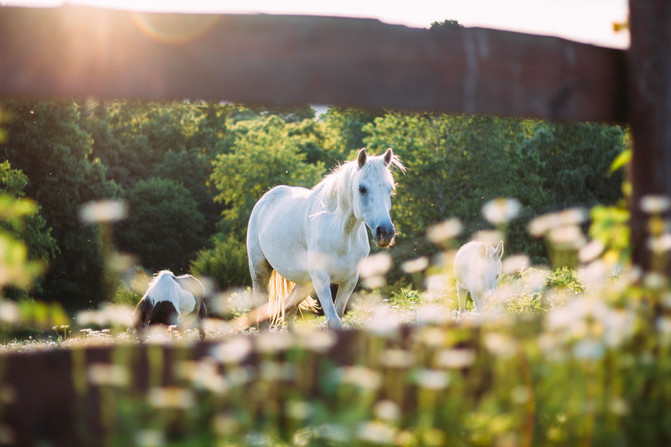Wujiang Ranch: Spring Horse Health Check
Before starting planning shows, cross-country rides and other equestrian adventures, make sure your horse is ready for all activities. Here is what you need to know about Spring Horse Health Checkups.
1. Harmful parasites
Intestinal parasites are daunting creatures. Their tiny eggs are scattered in horse manure and then scattered across the pasture, from which larvae hatch. These tiny infant parasites crawl onto the grass of grass, where they continue to mature into so-called third-stage larvae. The larvae in the third state patiently wait for an unsuspecting horse to appear and swallow them while grazing.
They then enter the gastrointestinal tract, mature into adults, and cause damage to the horse's interior. The warm and humid soil is the perfect condition for these eggs to mature into larvae. Guess when it happened-spring! This is one of the reasons why it is so important to have a spring horse health check.
In the past, horse owners regularly dewormed their horses no matter what, usually every eight weeks, starting in spring. However, we now know that overuse of insect repellents can lead to resistance to antiparasitic drugs, which means that some of these drugs are no longer as effective as before because the parasites have adapted to them.
Therefore, spring horse health checks are the best time to test horses for parasites. This means the veterinarian will take fecal samples and count the number of parasite eggs present. Measuring year after year, the number of eggs in these feces will tell veterinarians whether the deworming treatment the horse received has had the expected effect: reducing the number of parasites in the horse.
Most adult horses need to receive at least one or two deworming treatments per year to control a very dangerous parasite called Circus or red worm. They are just a parasite that affects your horse. Additional treatment throughout the year should be based on fecal egg count.
Talk to your veterinarian about horse fecal egg count results during spring health checks and ask which insect repellent is best to use in the spring for specific parasite types in your area.
2. Spring Horse Health Vaccine
You may have heard the term "spring vaccine" before. This is because spring is the most common season to boost horses 'annual vaccines, ensuring he has high levels of antibodies to protect him from infectious or other harmful diseases during the busiest time of the year.
At a minimum, all adult horses should be vaccinated annually against rabies, East-West Equine Encealment (EEE/WEE), West Nile Virus (WNV) and tetanus. Equine veterinarians call these "core vaccines," which means they are the most important.

Horses can also receive many other vaccines. If you talk to a veterinarian during a spring horse health check, it's not difficult to find out what your horse needs. She will recommend vaccines based on your horse's age, health, place of residence, travel plans and exposure to other horses.
Some common "non-core" vaccines include the kill vaccine, equine influenza (influenza), equine herpesvirus (rhinopneumonia or rhinoceros) and Potomac horse fever. Sometimes boarding stables require horses to be vaccinated against these diseases.
Once a horse enters the spring vaccination program, it will be convenient to get him vaccinated every year-which ensures he is not protected.
3. Healthy horse nutrition
Watching the barn pasture change from frozen mud soup and brown trampled grass to lush bright green carpet in front of you feels neat, but your horse is even more excited about the change.
Green grass is the best food your horse has; this is what his body is used for. In fact, the more a horse is on the ranch rather than in the stable, the healthier it becomes.
However--and this is a huge however--it can also be a good thing. Spring is the time of year to observe horse weight and grass consumption. The lush new spring grass is not only rich in nutrients, but also contains sugar. If your horse eats a lot of these sugars without being used to them, he may suffer from colic or develop laminitis.
Previous Article:Beijing Tourism: Walking into the Five Pagoda Temple to experience the art and culture of stone carvings (Photo)
